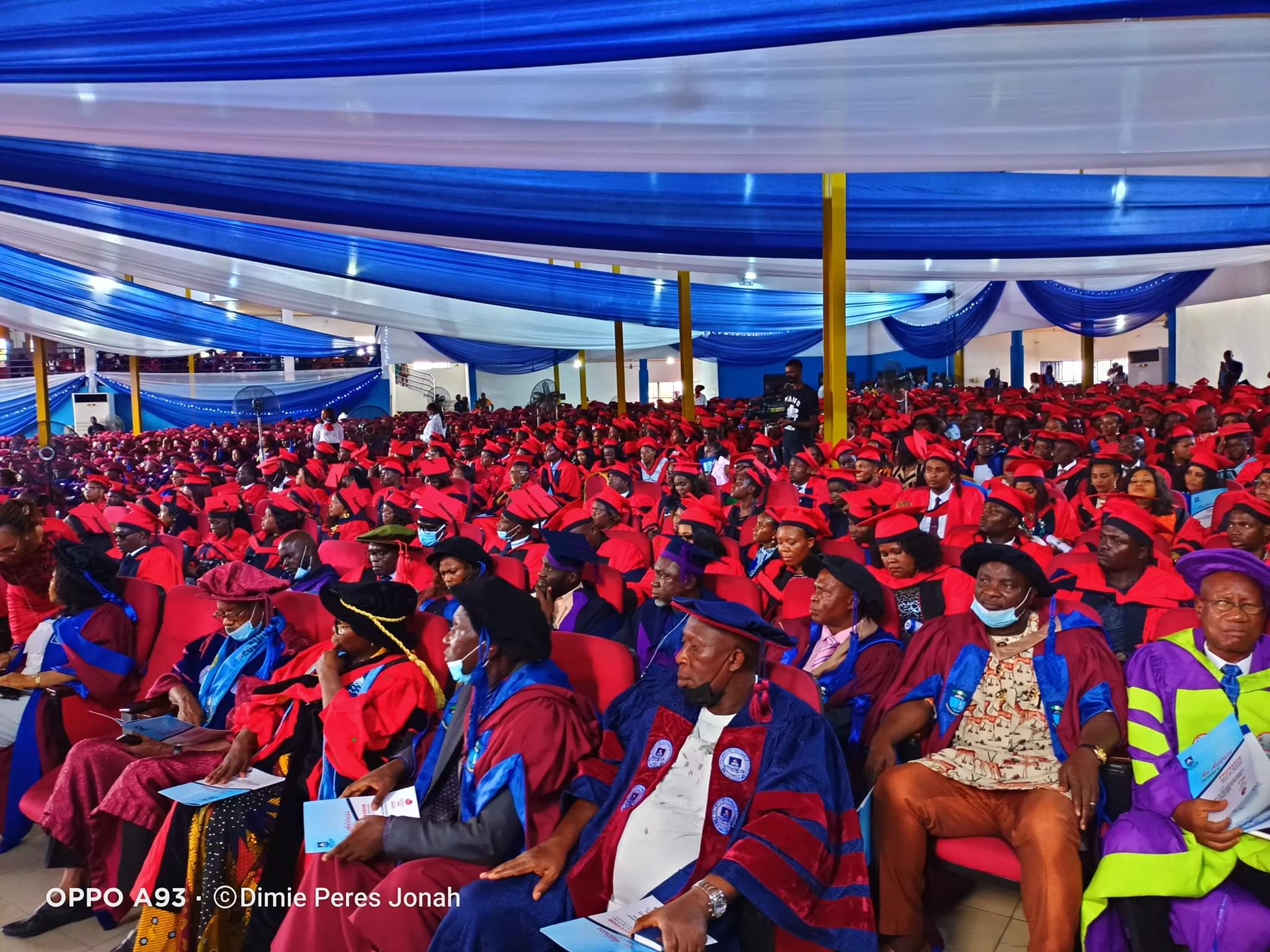Editorial
UNIZIK’s Expulsion Of Precious Mbakwe

The recent expulsion of Precious Mbakwe, a 300- level female student of History and International Studies of the Nnamdi Azikiwe University (UNIZIK) by the institution’s management for assaulting a lecturer of the school is a commendable sanction. The decision sends a clear message about maintaining discipline and respect within academic institutions.
In a letter signed by the university registrar, Victor Modebelu, and addressed to Mbakwe, the university said the students disciplinary committee found her guilty of assault on a lecturer, Chukwudi Okoye, in the Department of Theatre Arts and Film Studies. The letter further noted that the student violated the Students Disciplinary Regulations particularly Regulation 4 (SDR). This formal documentation shows the university’s commitment to following proper procedures in disciplinary matters.
According to reports, trouble started when Mbakwe pounced on the lecturer, bit him multiple times, and tore his clothes for allegedly interrupting her TikTok video recording along the Faculty of Arts corridor. In response to the uproar, the university management launched a full-scale investigation into the incident. The severity of the assault warranted immediate attention from the institution’s authorities.
We unequivocally condemn the offensive against the lecturer. Acts of violence and misconduct are antithetical to the values of academic inquiry and should have no place within our educational establishments. This physical attack represents a grave breach of trust and conduct, a violation of the very foundation upon which a safe and productive learning surroundings is built.
Such mien cannot be tolerated in any educational setting, as it undermines the principles of respect, intellectual freedom, and the pursuit of knowledge that are essential to our scholarly community. We stand in solidarity with the victim and commit to fostering a campus culture where such occurrences are not only unacceptable but actively prevented.
Mbakwe’s reported action is an embarrassment to the student body and does not represent the values of the Nigerian student locale, which emphasises integrity, respect, and accountability. Such conduct besmirches the reputation of not only the individual but also the broader pedagogical community, which works diligently to uphold high standards of behaviour, professionalism, and academic excellence
We urge the university authorities to take a more decisive action by involving the police in the matter. The serious nature of this episode goes beyond what academic penalties can address. Such action would create a strong precedent, reinforcing the message that violence is intolerable and ensuring that future matters are met with appropriate legal consequences.
The academic milieu must be preserved as a space characterised by respect and learning. It serves as a foundational framework for intellectual growth and the exchange of ideas. Universities, in particular, play a critical and influential role in shaping the future leaders and professionals of society. Given this paramount responsibility, it becomes essential to maintain high standards of action and foster an atmosphere of mutual respect.
Proper channels exist for students to raise concerns and seek resolution of issues they face. Students should utilise these official processes and avoid actions that could harm their educational prospects. The established systems for addressing grievances provide constructive ways to resolve conflicts without resorting to disruptive etiquette.
Respect for lecturers lies at the heart of meaningful learned discourse. When students show genuine regard for their teachers’ expertise and experience, it creates a habitat conducive to erudition and intellectual advancement. This means actively participating in discussions, meeting deadlines, and approaching disagreements with maturity.
University rules serve as the framework that enables thousands of students and staff to coexist and work productively. These regulations, from library policies to examination procedures, are not arbitrary restrictions but carefully considered guidelines that protect erudite integrity and ensure fair treatment for all. Adhering to these guidelines enables students to foster a structured and effective educational environment while enhancing their abilities in complying with institutional regulations.
The National Association of Nigerian Students (NANS) should issue a formal statement condemning this disruptive comportment and urge all students to maintain decent conduct on campus. The union must emphasise the seriousness of treating lecturers and university administrators with due respect, while fostering an instructional environment that promotes constructive dialogue and mutual understanding between students and the authorities.
This incident should serve as a learning opportunity for all stakeholders in the Nigerian education system about the magnitude of maintaining decorum and following established protocols for conflict resolution. It reinforces the need for continuous dialogue about pertinent demeanour in intellectual settings while adapting to changing social norms.
Editorial
AFCON ’25: Bravo, Super Eagles, But…

Editorial
Fubara: Celebrating A Leader At 51

Editorial
Beyond Accessing Bonny By Road

-

 Politics4 days ago
Politics4 days agoPFN Rejects Call For INEC Chairman’s Removal Over Genocide Comments
-

 Rivers4 days ago
Rivers4 days agoFasthire, PHCCIMA, CIPM Host CareerFest 2026 In PH
-

 Sports4 days ago
Sports4 days agoEnekwechi wins Orlen Cup in season opener
-

 Politics4 days ago
Politics4 days agoHoodlums Disrupt LP-ADC Defection Event In Lagos
-

 Sports4 days ago
Sports4 days agoFalconets, Senegalese Lionesses arrive Ibadan for qualifier
-

 Sports4 days ago
Sports4 days agoSimba open Nwabali talks
-

 Politics4 days ago
Politics4 days agoRemoval From INEC’s Portal, Abure-Led LP Faction Mulls Legal Action
-

 Niger Delta4 days ago
Niger Delta4 days agoTinubu, Jonathan, Diri Pay Last Respect To Ewhrudjakpo

